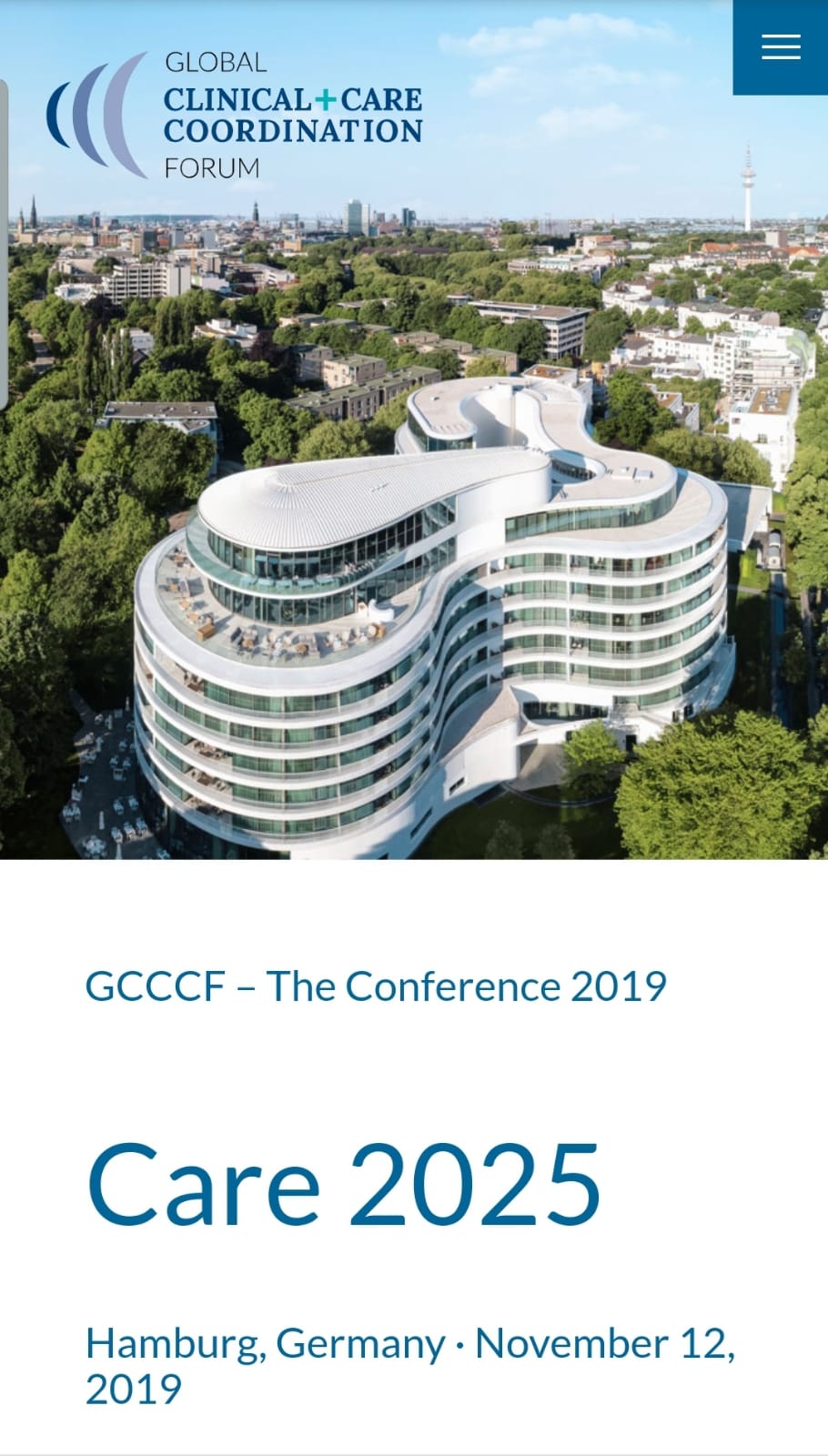Trusting Doctors and Nurses is an ALLIANCE so that together we can work together and easier.

The forum opened with a welcome address from Ljubisav Matejevic, President, Global Clinical+Care Coordination Forum welcoming all delegates; Mikhail Marin, Vice Consul, Consulate General of the Russian Federation in Hamburg who talks about Health telecare and working with German Scientist on improving biomedicine. AI (Artificial Intelligence) was also discussed by Doron Abrahami, Head of Economic and Trade Mission, Embassy of Israel in Berlin and that even on the advance face of the healthcare system in Israel they are still a work on progress.
“If you don’t like change, you’re going to like irrelevance even less. --- General Eric Shinseki
The 5 strategic priorities of global healthcare leaders;
- Operational Efficiency
- Better patient outcomes
- Data-driven decisions
- Patient and customer experience
- Empowered workforce
Care is the provision of what is deemed necessary for the health, welfare, maintenance, and protection of someone, as humans it is a fundamental human right - to have access to safe and quality healthcare. Quality care, unfortunately, has a price. It is for this primary reason why it is hard for some countries and people to acquire this costly privilege when it should not be for the greater good.
Most of the delegates who participated in this event came from 1st world countries with more advanced technology when it comes to the healthcare delivery system, but why there are still too many patients traveling to so-called "third world" or developing countries for treatments or health tourism for that matter? Is digitization differentiating the privileged over those who are resource challenged to meet the demands on a larger scale or perhaps there are other relevant factors overlooked along the process?
These were but a few of the many questions raised during the said conference, withal we are more concern with the last question whether digitizing everything will help the organization, especially its nurses in rendering quality care to the clients as they have expected them to be.
Digitization may not be the best, but a better way in innovating healthcare services. Qatar Care, in general, has already embraced technology and incorporated them even on the company's daily work scheme. The organization needs to study further how these emerging collaboration between humans and technology in the future where work, on the other hand, will be simpler and less complicated. Incorporating this in the operation will be deemed quintessential to the clients' needs. The nurses will be keener on augmenting the delivery of care while the company is continuously improving the system and providing more adequate training on innovation in quality healthcare delivery.
We, at Qatar Care, is strategically confident that it is on the right track in embracing technology and innovation. Constant upgrade and immense empowerment of nurses would be significantly necessary to keep them mindful in using technology in their daily nursing activity for them to utilize those tools properly and not to cause hindrance in their work, but rather promote collaborative care and improve compelling communication. It is in gaining trust where we gain more success.








